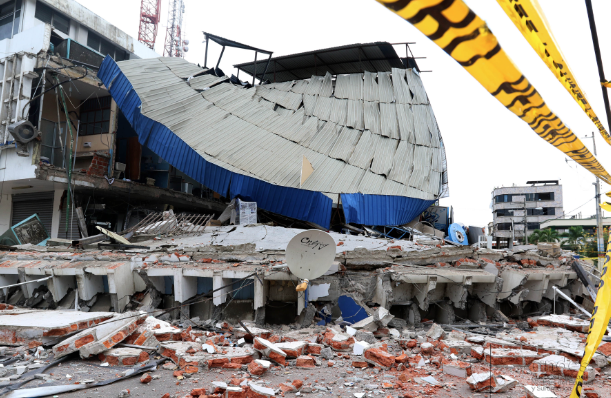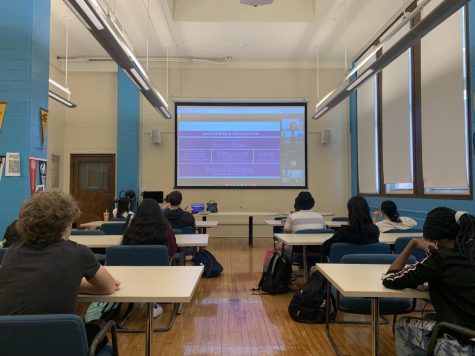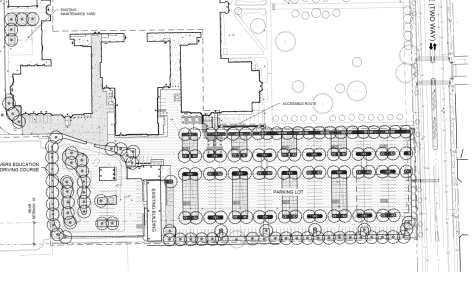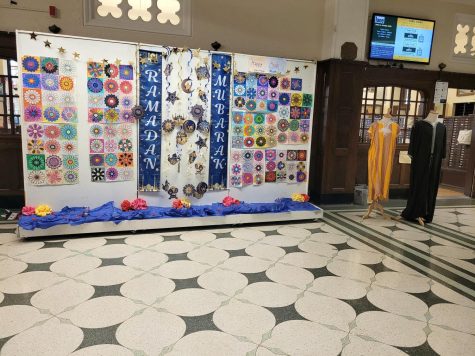The aftermath of Ecuador’s earthquake: #FuerzaEcuador
The main hotel of Porto Viejo completely collapsed. Many citizens were trapped in the building, with no way out besides help emergency personnel.
June 7, 2016
In April, Ecuador’s coastal region was hit with one of the country’s most devastating earthquakes in its history. However, Ecuadorians are not only affected by the aftermath of the catastrophe itself; they are also affected by the lack of media coverage on the event from local news stations.
According to ABC News and the moment magnitude scale, which is used by seismologists to measure the size of earthquakes, this one reached 7.8, which is considered max severity. It was the country’s most serious earthquake since 1979.
Some of the major cities hit were located near Ecuador’s coastline, including Muisne, Pedernales, Manta, Porto Viejo and Guayaquil, an important city and chief port in Ecuador, which is crucial to international trade and domestic commerce.
Michelle Robles, Div. 672, had family in Porto Viejo when the earthquake hit.
“We didn’t hear about the earthquake that happened in Ecuador until a couple of hours after it happened and even then, we couldn’t really get into contact with our family until the next day,” Robles said. “[At the time] all we really heard from them was that everyone was okay and thankfully no one got hurt.”
It was not until after the initial event settled that Robles was able to get more detail about her cousins and what had happened to them during the event.
“We were able to talk to them some more and we actually found out that two of my cousins were at a volleyball tournament in Porto Viejo when the earthquake happened and the hotel that they were staying in collapsed,” Robles sad. “Thankfully they turned out OK, but we didn’t hear from them for a couple of hours so our whole family was pretty worried.”
Robles’s family is from two small towns called Checa and Chiquintad, which neighbor another major city, Cuenca.
“[Checa and Chiquintad] weren’t all that close to where the earthquake hit hardest, but it gave them and us a pretty good scare,” Robles said. “There wasn’t any significant property damage and now, all we’ve been doing is sending in support for those who were hit hardest.”
Although her family in Ecuador is safe, Robles finds the lack of media coverage on the event to be fairly upsetting.
“I didn’t hear about the earthquake until people started sharing it on social media like Facebook and it wasn’t even right away, because I saw it after a couple of hours,” Robles said. “I don’t remember seeing much about it in the news either, maybe just the initial report on Univision. I haven’t seen much media on the aftermath nor did I see any other news channels reporting on how huge the earthquake was, so [the media] handled it pretty carelessly.”
Robles was very upset that news stations weren’t covering what happened in detail and that they didn’t do a follow up on how people in Ecuador are recovering.
“There’s only so many ways we can communicate with our family over there, so the fact that we had to go to the Internet and look up information on what’s going on was infuriating,” Robles said. “The earthquake might not have happened here in the US but it was still a massive earthquake and it should have gotten more coverage than it did.”
By comparison, social media such as Twitter and Facebook did a far better job of delivering information to those who needed it, according to Robles.
“Facebook was honestly the best way of finding information although it may be because I have lots of friends from the Ecuadorian community that were sharing pictures, stories, reports and interviews,” Robles said. “But the day of the earthquake, my news feed was filled with information and comments or prayers for Ecuador. Facebook even did the filter of the Ecuadorian flag to show its support and they had that notification that let you know of people in Ecuador that were known to be safe after the earthquake, so A+ for Facebook!”
According to Robles, although Twitter was not as full of information as Facebook, many people still shared links about it, which is more than she could say for news broadcasts.
Connie Machuca, Div. 666, also had family affected by the earthquake in Ecuador.
“My family is from Cuenca. My mom’s cousin’s family lived in Manabi and two of our family members disappeared,” Machuca said. “They still haven’t been located. [The earthquake] has affected me personally because I visited Ecuador before and it isn’t a stable country to begin with, so having a major disaster hit made me feel distraught.”
In order to help the cause, Machuca’s mother recently organized a fundraiser to send money to Ecuador. Her family has also volunteered at Casa Ecuatoriana to pack items to send to Ecuador.
“We worked with Casa Ecuatoriana, but the money my mom raised is most likely going to the Red Cross,” Machuca said.
According to ABC News, other efforts to help Ecuador included the gathering of many into the Ecuadorian House in Chicago’s Albany Park neighborhood in order to show support and the coming together of Ecuadorian business owners so that they could brainstorm a solution together.
“The country still has a lot of work to do to build itself up,” Machuca said. “So keep the Ecuadorian people in [your] thoughts.”







